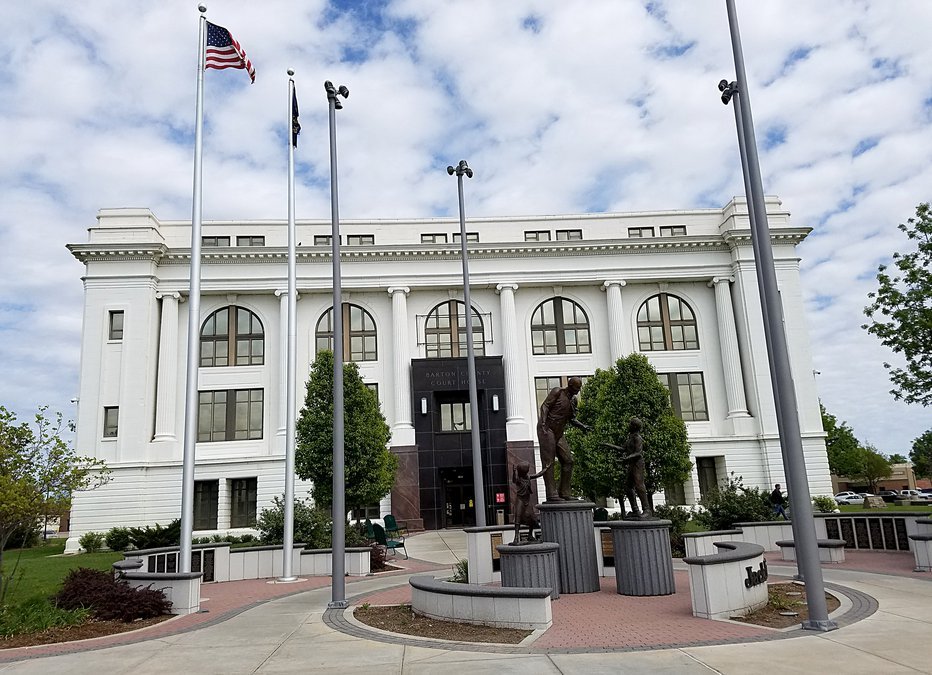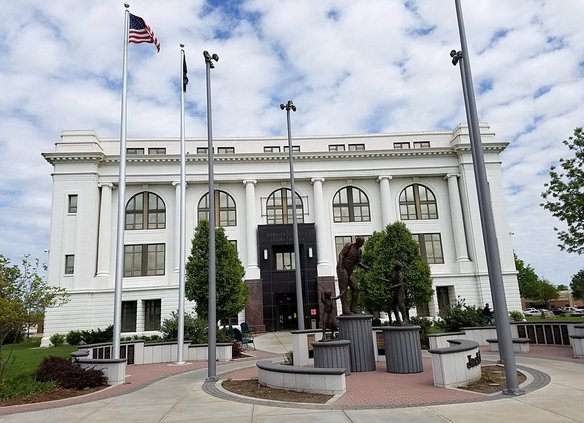The Barton County Commission Tuesday morning approved a contract with Postalocity of Wichita for $16,094.51 to handle the bulk mailing of property tax revenue-neutral rate notices for the County Clerk’s Office.
“They’re the ones that did it last year,” County Clerk Bev Schmeidler said. “They did a great job for us on short notice.”
The “revenue neutral rate” is the property tax rate in mills that would generate the same property tax revenue in dollars as levied during the previous tax year using the current tax year’s total assessed valuation, Schmeidler said. All Kansas counties are required to mail every property owner an estimated tax notice with information relative to each specific property’s taxes and the RNR compared to the proposed rate for each taxing subdivision (cities, school districts, townships, etc.).
The Clerk’s Office solicited proposals for the bulk mailing of the notices as prepared in cooperation with area taxing entities, receiving only on complete bid, that from Postalocity. The approximately 15,000-16,000 notices, as prepared through the county’s Computer Information Concepts Inc. (CIC) administrative software, must be mailed by Aug. 10. “The state is going to reimburse us for this,” Schmeidler said. But, “this is the last year they are going to.”
The Kansas Legislature passed Senate Bill 13 in 2021, dubbed by the Senate as the Truth in Taxation or the revenue-neutral bill,. The aim was to make the state’s complex tax system more transparent.
In a nutshell, SB 13 prohibits all taxing entities from increasing their tax collections by more than they did the year previous. This means, if an entity’s valuation (the total value of all property) goes up, the mill rate would have to go down to collect the same amount of taxes.
In addition, it established a requirement of notices to taxpayers and public hearings for municipalities seeking to collect property taxes exceeding their revenue-neutral rate.
The state said it will reimburse counties the cost of mailing the notices for the first two years. After that, each taxing entity will be responsible for their own costs.





